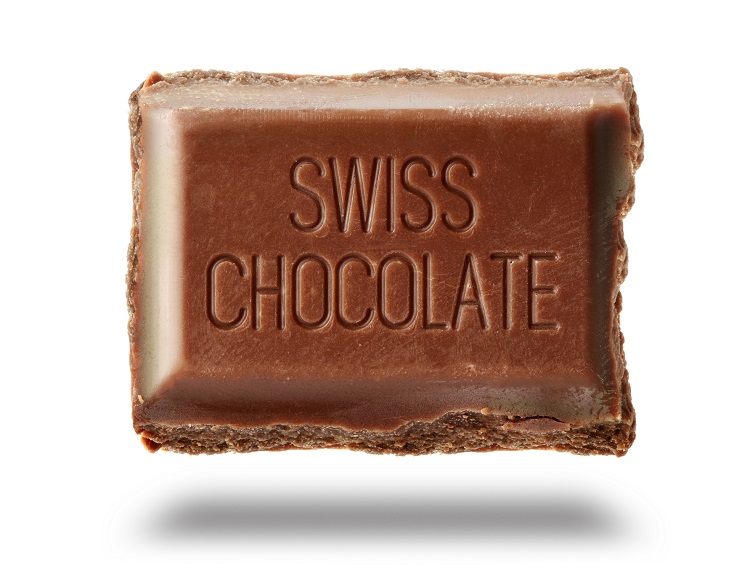
The Swiss method of making chocolate in bioreactors (19459000)
The Swiss are famous for their chocolate-based sweets and confectionery. In Switzerland, more chocolate is consumed per person than in any other country.
Coffee consumption in Switzerland is also high, with 7.9 kg consumed per person per year.
These caffeine and chocolate enthusiasts are now rethinking how these two products are produced. Innovators are using cellular agriculture to develop these highly sought-after products at home, instead of relying on coffee and cocoa crops that grow in tropical climates.
Food Brewer already makes its French press coffee
Food Brewer, a Swiss startup was founded in 2021. Since then, the company's team has grown to almost 20 members, including plant scientists and protein entrepreneurs. development and experts in cellular agriculture.
The goal from the start was to create sustainable tropical products for people, the planet and profits. Mathilde Dupin, financial director of Food Brewer, explains that the company is perfectly aware of the challenges facing the coffee and cocoa sectors.
We want to provide sustainable cocoa, that is, healthy for people and the environment, as well as sustainable for coffee and chocolate producers.
In 2024, when chocolate production is expected to peak, it is important that chocolatiers are financially stable. The price of cocoa has soaredThe price of a tonne has now reached the unimaginable level of $10,760 (10,039).

Food Brewer began its cellular agriculture practices with cocoa but quickly decided to focus on coffee as well, as they are both produced in similar climates and regions. Food Brewer works on supplying cocoa and coffee powders to the food industry. She is about to produce her first product.
Dupin revealed that they are already brewing their own coffee. We brew coffee in a French press and can see a variety of uses in the food industry.
How to Grow Cocoa Beans in the Lab
Food Brewer primarily sources cocoa beans from Latin America to make its cell-cultured cocoa. The majority of the world's cocoa comes from Ghana and the Ivory Coast, but it is also produced further west.
FoodNavigator's Dupin explained that Food Brewer started with Latin American cell lines because of demand and market interest in fruity varieties.
After sourcing the beans, the startup will dissect them to determine the best cells for taste, aroma and growth. This is crucial to ensure future scalability.
Food Brewer grows cells under the correct conditions and with adequate nutrition, similar to cultured meat (although less complex), using a culture medium, so that the cells can proliferate. All this happens in the bioreactors at Food Brewer's headquarters near Zurich.
We continuously monitor the development of cells over several days. Once the desired density is reached, the biomass is harvested, dried, crushed and then roasted to produce the desired flavor.
After roasting, cocoa beans are “very easily” integrated into the production processes of chocolate producers.
What about cell-grown coffee?
Food Brewer does not source cell-grown coffee from tropical areas. Food Brewer sources its Arabica cells closer to home, which is perhaps surprising.
We currently buy our coffee in Switzerland from a tropical plantation. The CFO stated that the coffee is grown in Switzerland and in this sense it is a Swiss product. In the future, we will source our coffee from different regions.
The coffee-based technique is very similar to cocoa cell culture. Start-ups select the best tissues and optimize environmental conditions and environments conducive to cell development.
We put them in bioreactors and create optimal conditions for their growth, before harvesting the biomass. Then we dry the biomass and continue roasting.
The process, although similar, is not the same. The parameters of each plant are different, from growing medium to conditions.
Coffee can either be brewed in the Food Brewer offices or incorporated directly into beverage and food formulations.
With cocoa, it's different. Cocoa powder and fat are mixed to make chocolate. The company is exploring darker chocolate formulas. This means that no alternative dairy products or milk substitutes are used. Food Brewer has worked to find non-tropical substitutes for cocoa butter.
Dupin revealed that Food Brewer's R&D program is currently focused on microalgae oil. This third pillar was explained by Dupin. We have three main pillars. First, we promote coffee and cocoa. Second, we are developing sustainable fats to enable coffee and cocoa.
Is it useful to be in a non-EU state for approval of novel foods?
Both cell-cultured cocoa and coffee are considered novel foods. They require approval before they can be marketed.
The role of the European Food Safety Authority (EFSA) in Europe is to assess the safety of a new food product. Some food tech companies are concerned that the regulatory process in Europe is too slow compared to other agencies.
Is it true that Food Brewer has an advantage due to its location in Switzerland?
We target major markets, such as the United States and Europe, for marketing. Dupin explained that the rules applicable in these markets were relevant to us.
Food Brewer has a “strong focus” on American GRAS (generally recognized as safe) certification, in the United States. There is greater certainty regarding deadlines. We were told this was “critical” for a start-up business like Food Brewer.
The two options are being studied in parallel by the company. However, it expects entry into the US market to be faster than the European market.

Food Brewer benefits from being established in Switzerland with access to a very advanced local chocolate ecosystem. He feels “privileged” to have a “network of expert advisors”. We have the biggest chocolate manufacturers nearby and we can trade with them every week.
Some of the largest chocolatiers are shareholders in our company.
What makes Food Brewer different?
Dupin said: “From the beginning we thought about how we could bring this to scale. » The start-up wishes to develop new flavors and fragrances for its products but is also keen to market them to the mass market without being a gimmick.

luxury within reach.
We have already started planning for larger scale production in the pilot plant. Dupin said one of the next steps will be finding a larger facility to process upstream and downstream. Scalability is a priority at every stage.
Food Brewer is not the only company developing cocoa and coffee from cell cultures, however.
California Cultured operates in France and the United States in the same field. StemThe company claims to be the first in the world to develop cell-cultured coffee. In Israel, at least two start-ups have been created. Celleste OrganicYou can also learn more about: KokomodoCell cocoa is grown by several people.
Food Brewer believes the market and space are large enough to accommodate all of these innovative products.

